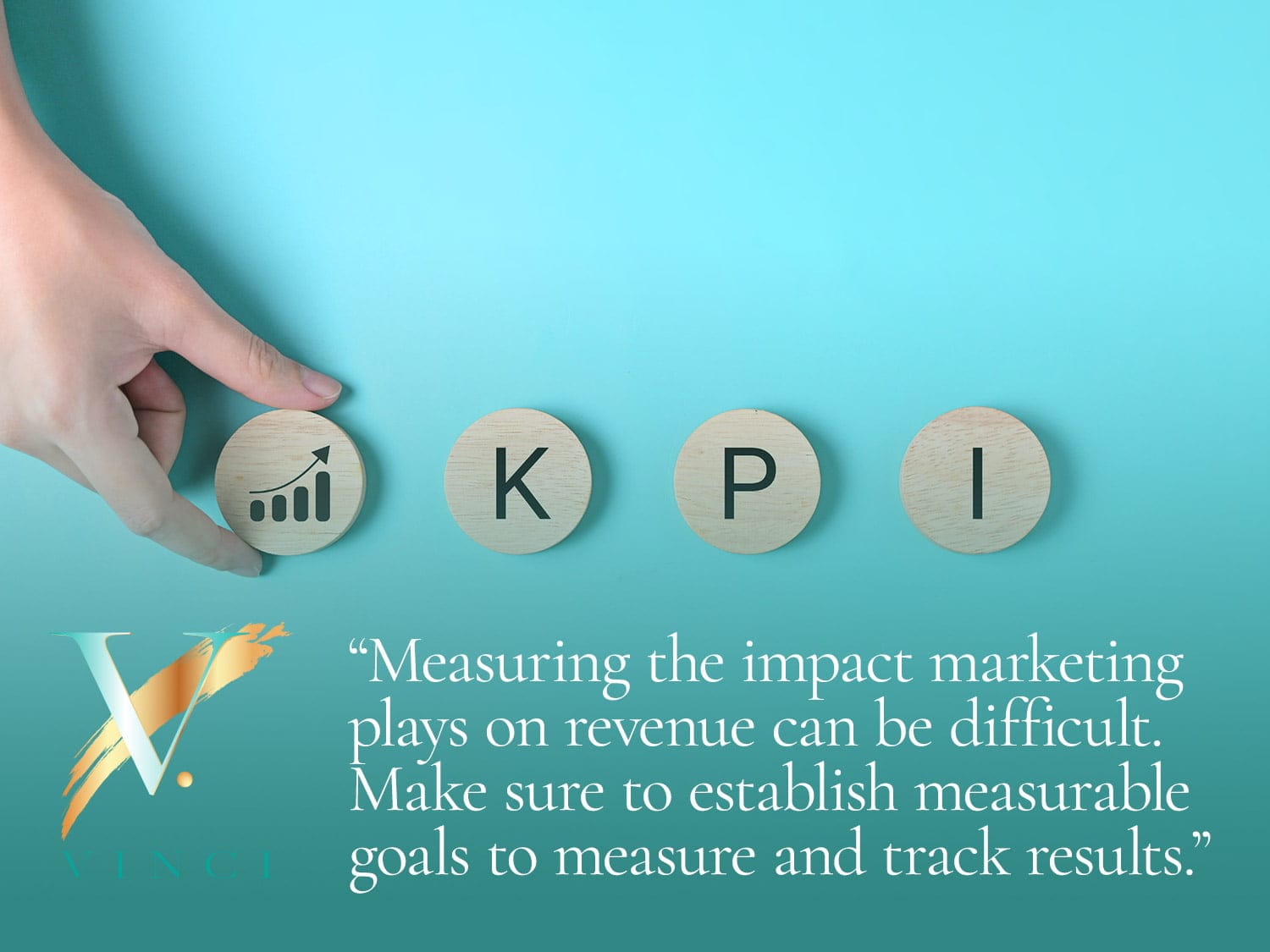Marketing is an essential part of any business strategy, and there is no question that it is a critical driver in revenue growth. Today, we are here to help you understand how marketing can enormously impact your business’s growth and break down the events that occur throughout the marketing process.
First and foremost, let’s talk about some of the key roles marketing will play for your business:
The importance of brand awareness:
Brand awareness is how consumers can recall and recognize your brand. Therefore, brand awareness campaigns help consumers become familiar with your brand’s new or revised product. When a consumer is searching for a product or service within your industry, you want your brand to come into their mind. Brand awareness can help improve sales by making people aware of your brand by targeting relevant, high-quality audiences12.
The role of lead generation in driving revenue:
Lead generation is identifying potential customers for your business’s products or services. It involves creating interest in your product or service and then capturing that interest by collecting contact information from potential customers. Lead generation is essential because it helps businesses identify potential customers interested in their products or services and convert them into paying customers1.
The impact of customer retention on revenue growth:
Customer retention refers to the ability of a business to retain its existing customers over time. Keeping customers is essential because it costs less to maintain an existing customer than to acquire a new one. In addition, existing customers are more likely to purchase additional products or services from your business than new customers.
Marketing’s role in product development and innovation:
Marketing plays a vital role in product development and innovation by helping businesses identify customer needs and preferences. By understanding what customers want, companies can develop products that meet those needs and preferences, which can lead to increased sales and revenue growth
Marketing Strategies That Drive Sales
 Marketing strategies are essential for driving sales growth. Here are some marketing strategies that can help:
Marketing strategies are essential for driving sales growth. Here are some marketing strategies that can help:
Content marketing and thought leadership:
Content marketing is creating and sharing valuable content to attract and retain customers. Thought leadership is a type of content marketing that focuses on creating content that positions you as an expert in your industry. You can build trust and credibility with potential customers by creating valuable content that helps your target audience solve problems or learn something new.
Social media marketing and influencer partnerships:
Social media marketing involves using social media platforms to promote your products or services. Influencer partnerships involve partnering with influencers with a large social media following to promote your products or services. By leveraging the power of social media and influencers, you can reach a wider audience and drive more sales.
Email marketing and marketing automation:
Email marketing involves sending promotional emails to your subscribers to promote your products or services. Marketing automation involves using software to automate repetitive marketing tasks such as email campaigns, social media posts, and other digital marketing activities. By automating these tasks, you can save time and resources while still driving sales6.
Search engine optimization (SEO) and pay-per-click (PPC) advertising:
SEO involves optimizing your website to rank higher in search engine results pages (SERPs). PPC advertising involves paying for ads that appear at the top of SERPs for specific keywords. By optimizing your website for SEO and using PPC advertising, you can drive more traffic to your website and increase sales.
Affiliate marketing and strategic partnerships:
Affiliate marketing involves partnering with other businesses or individuals to promote your products or services in exchange for a commission on sales. Strategic partnerships include partnering with other companies to create joint marketing campaigns or promotions that benefit both businesses. You can reach new audiences and drive more sales13 by leveraging these types of partnerships.
Collaborating with Sales Teams

Marketing and sales teams need to work together to drive sales growth. Here are some ways that marketing can collaborate with sales teams:
Aligning marketing and sales goals:
Marketing and sales teams should have the same goals and objectives to ensure they work towards the same outcomes. By aligning their goals, marketing and sales teams can collaborate more effectively to drive sales growth1.
Ensuring seamless lead handoff from marketing to sales:
Marketing teams should work closely with sales teams to ensure that leads are handed off seamlessly from marketing to sales. This can help ensure that leads are followed up on quickly and efficiently, leading to more sales2.
Using marketing data and insights to support sales efforts:
Marketing teams can use data and insights from their campaigns to help support sales efforts. For example, marketing teams can provide sales teams with information about which leads are most likely to convert into customers, which can help them prioritize their efforts.
Collaborating on sales enablement and training:
Marketing teams can work with sales teams to develop training materials and resources to help them sell more effectively. By collaborating on these materials, marketing, and sales teams can ensure they work towards the same goals4.
Marketing is essential for driving sales growth. By collaborating with sales teams, marketing teams can help ensure they are working towards the same goals and objectives, leading to more effective campaigns and increased revenue.
Measuring Marketing’s Impact on Revenue

Marketing is essential to any business, but measuring its impact on revenue can be difficult. Here are some ways that you can measure marketing’s impact on revenue:
Defining and tracking key performance indicators (KPIs):
KPIs are metrics that help you track your marketing campaign’s performance. By defining and monitoring KPIs, you can better understand how your marketing efforts impact revenue1.
Calculating return on investment (ROI) for marketing initiatives:
ROI is a metric that helps you understand how much revenue your marketing initiatives generate compared to how much you spend on them. By calculating ROI, you can better understand which marketing initiatives are most effective at driving revenue2.
Using customer lifetime value (CV) to assess marketing effectiveness:
CV is a metric that helps you understand how much revenue a customer will likely generate over their lifetime. By using a CV, you can better understand how effective your marketing efforts are at driving long-term revenue3.
Leveraging marketing analytics tools for data-driven decision-making:
Marketing analytics tools can help you analyze data from your marketing campaigns and make data-driven decisions about optimizing them for revenue growth4.
By measuring marketing’s impact on revenue, you can better understand which marketing initiatives are most effective at driving revenue growth and make data-driven decisions about optimizing them.
Here are some ways to adopt a revenue-focused marketing mindset:
- Understand your customers: The key to generating more revenue is understanding what your customers want.
- Align your sales and marketing teams: Sales and marketing teams typically report and track different key performance indicators. By aligning these teams, you can ensure everyone is working towards the same goals.
- Implement marketing automation: Marketing automation can help you streamline your marketing efforts and make them more effective at generating revenue.
- Create relevant content across the buying cycle: By creating content relevant to your customers at every stage, you can increase the chances of converting them into paying customers.
- Analyze the big-picture data: By analyzing data from your marketing campaigns, you can better understand which initiatives are most effective at driving revenue growth.
Marketing is vital in propelling revenue and reinforcing sales operations in the highly competitive modern business world. To accomplish this objective, marketing professionals must recognize the correlation between marketing activities and revenue generation while employing efficient marketing tactics encouraging cooperation with sales departments. By evaluating the influence of marketing on revenue and cultivating a mindset centered on revenue generation, marketers can substantially impact their organizations’ growth and prosperity.
For marketing professionals, it is imperative to keep abreast of the most recent developments, techniques, and industry best practices. Do you want help with marketing initiatives that enhance brand recognition and produce quantifiable outcomes for your company? Our team at Vinci can help promote revenue growth and bolster sales efforts. Click here to claim your FREE 30-minute strategy call today!











